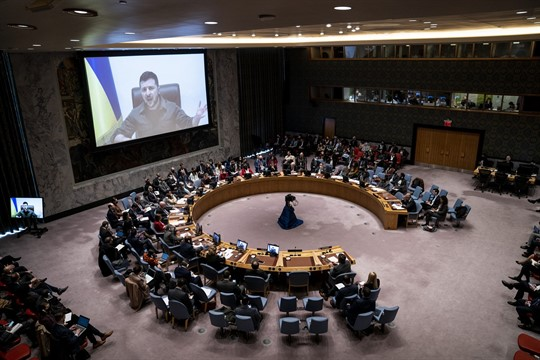
How should one think about the future of the global order and international organizations against the backdrop of Russia’s war on Ukraine? The war has highlighted the limitations of multilateral security institutions at both the global and European levels, as Moscow has blocked or ignored calls from the United Nations and other bodies to cease the hostilities.
While some observers believe these organizations are as a result doomed to irrelevance, others have argued that the crisis creates an opportunity to revitalize them. There has been a lot of talk, for example, of changes to the U.N. Charter to stop Russia from using its Security Council veto to torpedo any resolution criticizing its war.
As I have argued elsewhere, it is premature to assume that Ukraine marks a turning point in multilateral affairs. The war is appalling, but not yet on the same scale as World Wars I and II, which led to the creation of the League of Nations and the U.N., respectively. This moment may instead prove to be akin to the Iraq War, which also led to a lot of talk about the need to overhaul the Security Council and the wider global system, but ultimately led to quite modest U.N. reforms.
